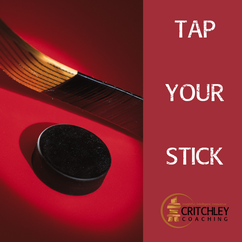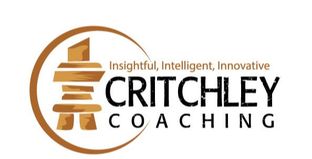
In the game of hockey, clearly the goal of each team is to score more points in the opposite team’s net than the other manages to do. If only it were a simple task. Teams study each other’s plays prior to the games and try to come up with defensive techniques that will hinder the success of their opponents. At the same time each team develops offensive plays that will offer them the best chance of scoring.
Part of the offensive strategy is to create plays that will leave one player open, uncovered by one of the opposition players, for even just a few seconds; just long enough for them to receive a pass and make either another pass or a shot on net. Of course, if none of his teammates notices this player is open, he will not receive the puck and his effort will have been for naught.
One of the things players learn to do from a very young age is to make themselves noticed when they are in this position. One of their strategies is to ‘call’ for the puck by giving their stick a quick tap or a couple of taps on the ice. This motion is recognized by other players as a signal to pass the puck to the open player. There is a trust involved in this interaction; players should not tap their stick simply because they wish to have the puck. They tap because there is an opportunity available and they are ready to act. They have done the work required to put themselves in the position to execute and by tapping they are stating their readiness to perform.
If only life had such clear-cut plays. If only we each knew how to tap our stick to become noticed, at exactly the time we were ready.
Many times in life, we work incredibly hard, striving toward mastering a new skill, setting ourselves up for a promotion or working on our social game, each time thinking and hoping we will be noticed when exactly the right opportunity appears. Many times, the opportunity comes and goes and we are left wondering how it was possible that we were not noticed. Not only may we have been unnoticed, but to add insult to injury, it may be that someone less accomplished or competent, may have been given the invitation to accept the opportunity.
We can spend hours and days wondering how we could have been overlooked. Typically, our response is to assume we did not quite make the mark, and we put our heads down, get back to work and hope we are noticed the next time. Alas, the real problem may not be the one we think it is. It is possible we were the best candidate. It is possible we were best qualified. It is possible we were in the right position. And it is possible we simply forgot to tap our stick.
Tara Mohr, in her book Playing Big, describes how this is an especially common phenomenon for women. She describes how girls and women are trained to have ‘good student habits’. In most classrooms, astute students can learn the expectations of any teacher quite quickly. They understand what is required to obtain excellent marks and they put their heads down and get to work. They are rewarded with marks that reinforce their good efforts. The problem is they need not tap their sticks to receive the reward and many of them never realize that there even are sticks to be tapped. They enter the workforce and their adult lives assuming they will be noticed if they are good enough. No one ever lets them know the little secret of stick tapping. A lot of us are left out of not only promotions and meetings because of this, we can also be left out of simple decision making in our daily lives. It isn’t that we don’t have good ideas or don’t want to be considered. We have simply over-practiced working hard and hoping others notice us rather than learning to spend a little bit of time understanding when and how to tap our sticks.
My good friend Geoff often takes trips with his teenaged son. Geoff was telling me how on the trips, his son, when asked where he might like to go for dinner or what he might like to see during a day trip, would often reply with, “I don’t know” or “I don’t really care”. His son was not being difficult, he was simply doing what was easy. Geoff astutely recognized that this behaviour would not serve his son well in life and he explained to him that in the adult world, not having an opinion was not an option. Geoff then tasked his son with planning every second day of each trip. The plans needed to include searching out points of interest and intriguing restaurants. He also explained to his son that the plans would not always unfold smoothly, just as in life, and he needed to be able to be flexible. Geoff told me that while he and his son had always had a wonderful time travelling together, now the trips were even more memorable.
As I listened to Geoff tell me about these trips and his parenting, it dawned on me that Geoff was teaching his son something I had really never learned until late, late in life; he was teaching him to tap his stick. He was teaching him that when opportunities arise and when he is in a position to act, he needed to become visible. He needed to use his voice. He needed to, with his actions, say “I have prepared, I have something to offer, and I am ready”.
The boys on Team Canada tapped their sticks this past week and although I’m sure that along with the rest of us, their hearts broke with their loss to Finland in the quarter final, they showed all of Canada that they know about stick tapping. No matter the outcome of that game, each of them came prepared, had something valuable to offer, made themselves visible, was willing to tap their stick and not be afraid to take risks. They should be proud.
Each of us has plenty to offer to this world this year. Each of us have skills and ideas. Each of us wants to be recognized and selected. Each of us will put ourselves in positions where we have opportunities to be noticed. I hope each of us will have the courage to tap our stick.
My inquiry for you this week is, ‘What stick needs tapping?’
Elizabeth provides leadership and personal coaching for individuals and teams. She creates and facilitates custom workshops for corporate, public and private groups. Contact Elizabeth to help you learn how to tap your stick.


 RSS Feed
RSS Feed